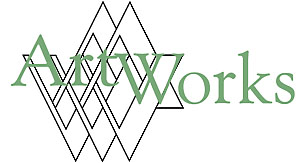
 |
Fall 2002 |
|
Milestones in Morgan WV native wins Tony Award ORBI Arts Network From the director Arts Action! resource kit A steelworker goes to the ball Arts Mongahela workshop Dancing with two left feet Arts conference inspires new ideas Fellowship winner profile
|
Neighbor states collaborate on accessibility workshopIn mid-May, 28 people gathered at the Joan C. Edwards Performing Arts Center on the Marshall University campus in Huntington to talk about why arts organizations need to do a better job of making their programs more accessible to people with disabilities. Sixteen of the participants represented arts groups from the Ohio River valley. Most came from West Virginia. The Access for All workshop was a collaborative effort of the West Virginia Commission on the Arts (WVCA), the Ohio Arts Council (OAC) and the Ohio River Border Initiative (ORBI). Because it is a joint project of both states arts agencies, ORBI had a unique opportunity to bring together presenters from both states to share different talents, knowledge and experiences. The morning included a slide presentation by Mark Derry of the West Virginia consulting firm Eastlake, Derry & Associates and the ADA Coalition. He spoke on the reasons for ADA requirements. Mr. Derry’s lively session was followed by a discussion of ADA compliance, including current enforcement actions, by Phyllis Hairston, OAC’s 504/ADA Coordinator. Traci Parks, a self-described “blind commercial photographer,” presented a slide show of her current traveling exhibition, which highlights obstacles people with disabilities face in their everyday lives.
The afternoon began with a performance by guitarist Derek Mortland, who also discussed how playing his instrument in a wheelchair has affected his technique and playing style. Both Mortland and Parks have worked as consultants with the OAC to help Ohio arts groups make their programs accessible. A large part of the afternoon session consisted of a general discussion of accessibility questions and answers. The discussion centered on funding, strategies for promoting awareness of accessibility problems and ADA compliance and enforcement. Following the question and answer session, Martha Newman Collins, 504/ADA Coordinator for the WVCA, provided a summary of changes in West Virginia’s requirements concerning certification of ADA compliance by grant applicants. Collins made sure everyone at the workshop had a copy of the WVCA’s ADA compliance checklist form that can be used to create an ADA compliance transition plan for arts groups not already in full compliance with the ADA.
The workshop ended with a brief planning discussion of future ORBI workshops on ADA compliance issues and strategies. These will probably be shorter than the May workshop, and will focus on specific topics that were suggested by the Access for All workshop participants. Workshop participants found the day’s discussions and presentations valuable. Several people who had planned to leave early decided to stay until the end of the workshop. If you couldn’t attend this workshop, ORBI may present another one as early as fall 2002. Staff people at both the West Virginia Commission on the Arts and the Ohio Arts Council are ready to help organizations in understanding the Americans with Disabilities Act and to provide advice for making programs and services more accessible to people with disabilities. Phyllis Hairston is the 504/ADA Coordinator for the Ohio Arts Council. You can reach Phyllis by phone at 888-243-8622 or by e-mail at [email protected]. Contact your 504/ADA Coordinator at 304- 558-0220 for more information. Presenter Mark Derry also offered the consulting services of his firm, Eastlake, Derry & Associates. You can contact Mark at 304-296-3510 or by e-mail at [email protected]. Technical assistance and training is also available from the West Virginia ADA Coalition at 1097 Greenbag Road, Morgantown, WV 26508. The West Virginia Commission on the Arts also has Peer Advisors available without charge through its Peer Assistance Network program. These Peer Advisors, who can provide assistance with ADA compliance and training, are also available free of charge to Ohio arts groups in the ORBI region. |